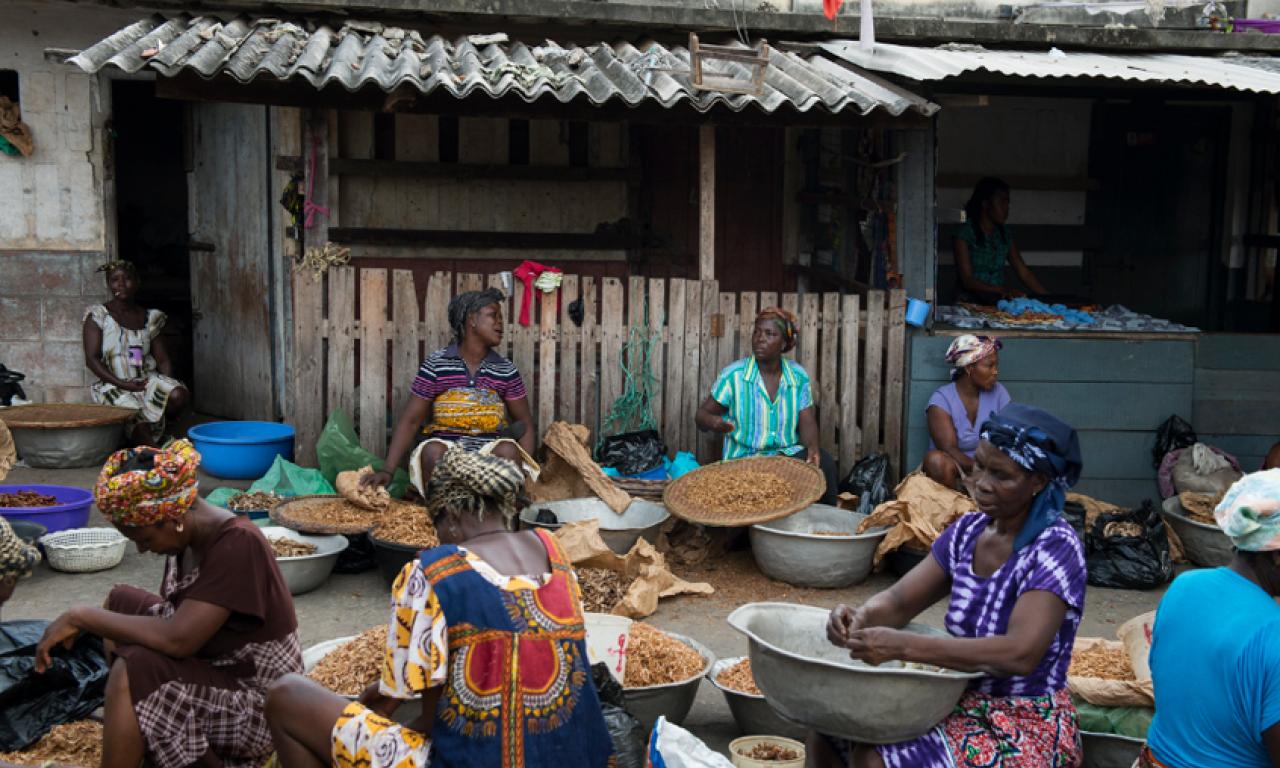
Forty representatives of fisheries and regional organizations from across Africa have called for the strengthening of existing small-scale fisheries bodies and the creation of a new pan-African platform.
Recommended publications
Cliquez ici pour l'article en français
Forty representatives of fisheries and regional organizations from across Africa have called for the strengthening of existing small-scale fisheries bodies and the creation of a new pan-African platform.
These actions are seen as critical to strengthening the voice of African small-scale fishers and fish workers at national, regional and global levels and enhancing their engagement in policy processes.
The recommendations were made at a three-day workshop, Pan-African workshop on strengthening organizational structures of non-state actors for sustainable small-scale fisheries in Africa, held on 10–12 July 2019 in Kasene, Botswana.
The workshop was organized jointly by WorldFish and the Food and Agriculture Organization of the United Nations (FAO) in collaboration with the African Union Interafrican Bureau of Animal Resources (AU-IBAR) and the Southern African Development Community (SADC).
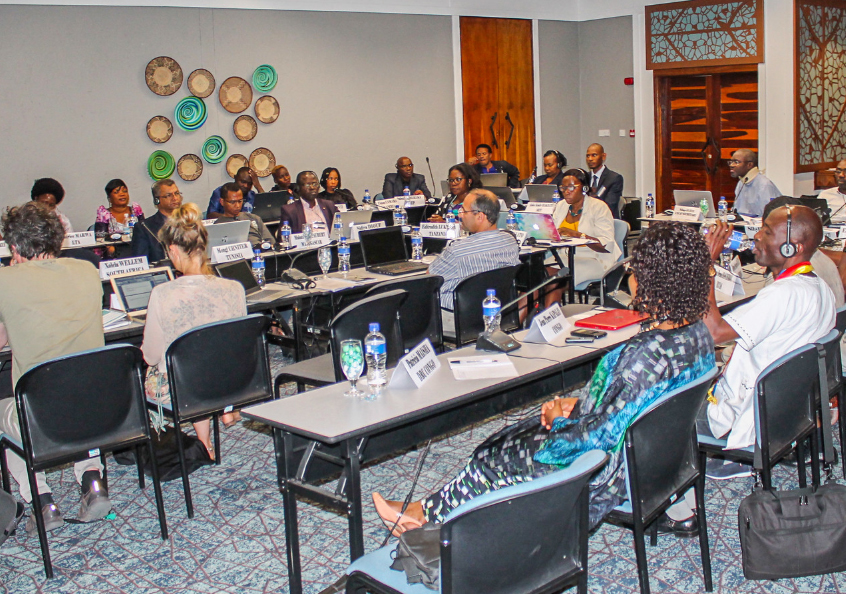
Strengthening existing bodies
Currently, there are five sub-regional non-state actor (NSA) platforms covering fisheries and aquaculture stakeholder organizations across Africa, as well as a pan-African network for women in fisheries (AWFISHNET), that advocate for their members and the sector.
As small-scale fisheries are a major component of African fisheries, a key focus of these bodies is on small-scale fishers, fish workers and their communities and how the sector contributes to food security and poverty eradication.
But the bodies face several challenges that threaten their long-term sustainability said Okeloh W’Namadoa, Chairperson for the Eastern Africa Fisheries NSAs Platform (EARFISH), at the event.
“Due to inadequate resources, we are unable to fulfill our mandate, which includes establishing and strengthening national organizational structures whose existence and vibrancy enriches our policy influence engagement.
“Not all small-scale fishers and fish workers are organized and not all countries have national associations to galvanize the voice of the small-scale fisheries actors. This negatively affects their participation in decision making and engagement in democratic processes at various levels.”
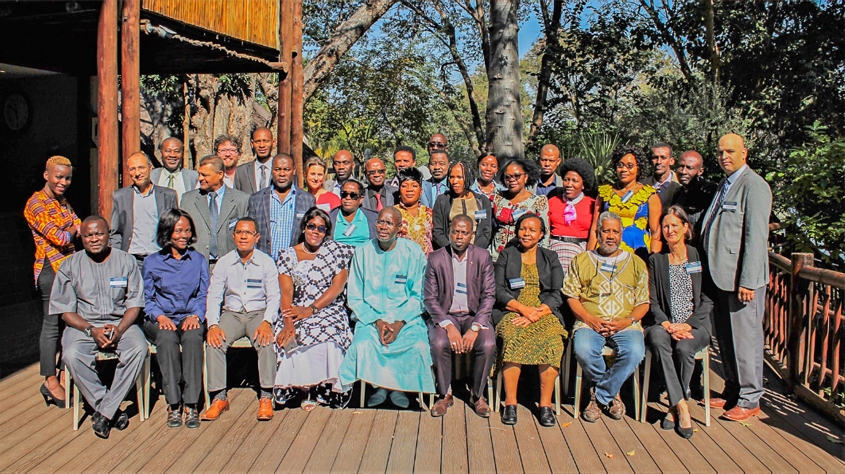
Recognizing these challenges, the workshop participants—including non-state actor platform representatives, other small-scale fisheries representatives and stakeholders, and regional organizations and partners—discussed the key capacity development needs.
“It was agreed that national organizations have to be strengthened as it’s the grass-roots level that provides the base for regional and global representation, and special consideration needs to be given to women organizations,” said Beyene Ateba Baliaba, representing the Central African Non-State Actor Platform (CANSAFA), of the workshop recommendations.
The participants discussed how the consultations and meetings that are already taking place between non-state actors and regional economic communities and regional fisheries bodies need to be supported and formalized.
Blue growth and marine spatial planning were also recognized as emerging issues, both in policy and practice, with everyone agreeing it is important to position small-scale fisheries within these concepts.
Other identified needs related to addressing climate change and disaster risks, enhancing access to various types of training and capacity development along the value chain, and collaborating on research with universities and research institutes.
“Sustainable formal mechanisms for cooperation should be established between researchers and small-scale fisheries actors to ensure the knowledge of fishers and fish workers is harnessed,” said Emmanuel Kaunda, a professor from Lilongwe University of Agriculture and Natural Resources (LUANAR), at the meeting.
“Small-scale fisheries actors and fishing communities should be the point of departure for research. And research results should be shared, disseminated and implemented, including with fishing communities.”
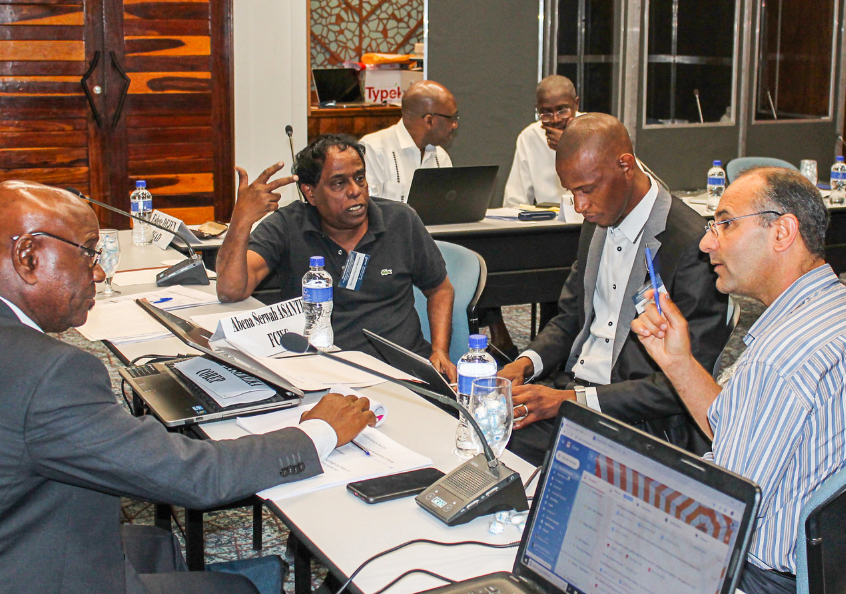
A new regional platform
The five sub-regional NSA platforms were created when fisheries and aquaculture non-state actors expressed a desire in 2010 to organize themselves to champion the interests of small-scale fisheries.
This led to active engagement with the African Union (AUDA-NEPAD & AU-IBAR) during the development of the 2014 African Union Policy Framework and Reform Strategy for Fisheries and Aquaculture in Africa (PFRS).
“A key premise of this and other small-scale fisheries-related frameworks is the importance of effective participation of small-scale fishers and fish workers in decision and development processes that concern their lives and livelihoods,” said Gaoussou Gueye, President of the African Confederation of Professional Organizations For Artisanal Fisheries (CAOPA) and also of the West African Non-State Actors in Fisheries and Aquaculture (WANSAFA).
“But a key factor in making such participation possible is the existence of strong, transparent and democratic organizations representing small-scale fisheries.”
Recognizing this, the workshop participants confirmed the need to create a pan-African platform of small-scale fisheries representatives, as planned within the PFRS.
“The pan-African platform will advocate for and support the implementation of the fisheries policy frameworks, coordinate advocacy activities at the continental and global levels, and provide a coherent voice for non-state actors,” said Mauree Daroomalingum, coordinator of SWIOFish 1 project at the Indian Ocean Commission.
The workshop participants concluded that the African Union should take the lead on forming the platform, with FAO and WorldFish to provide technical support. It was recommended that it consist of two representatives from each of the five sub-regional platforms, ensuring women are adequately represented.
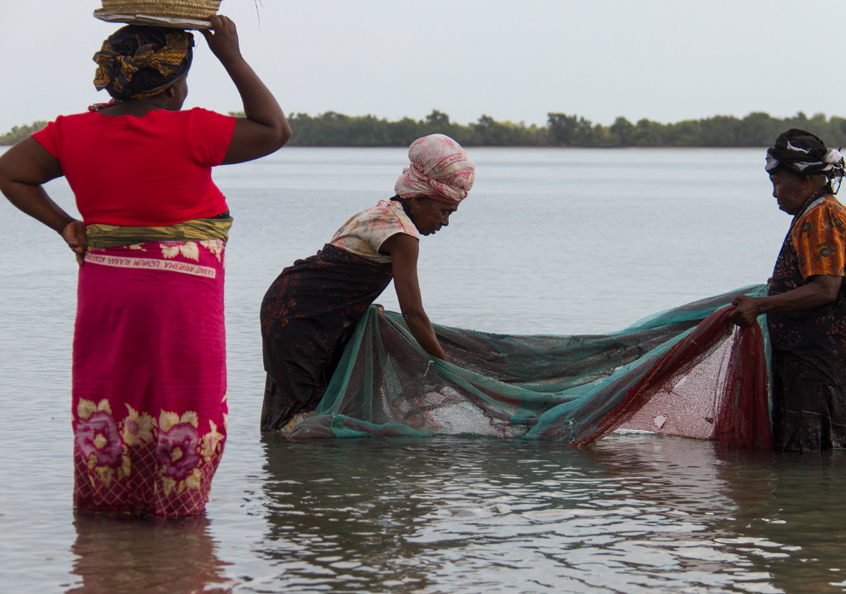
Gender equality was identified by participants as a key challenge and opportunity around fishers’ and fish workers’ representation in policy processes at all levels.
“The important role of women in small-scale fisheries and their needs should be further recognized and women must be fully represented at all levels,” said Editrudith Lukanga, Secretary General of the African Women Fish Processors and Traders Network (AWFISHNET).
Women make up over one-quarter of the African fisheries workforce and also often contribute in informal and invisible ways to the household, community and fisheries levels.
“Yet women have significantly less opportunity to participate and be heard in decision-making processes than men,” said Lukanga.
“The inclusion of women in NSA platforms and the successful operation of AWFISHNET for the last two years represent progress that needs to be built on.”
Linking global and regional processes
Beyond regional policy processes, workshop participants identified the need to better link African small-scale fisheries actors into global processes.
Enhancing the visibility and recognition of small-scale fisheries is emphasized in the Voluntary Guidelines for Securing Sustainable Small-Scale Fisheries in the Context of Food Security and Poverty Eradication (SSF Guidelines), the first international instrument dedicated to the sector.
To this end, an advisory group has been formed within the Small-Scale Fisheries Global Strategic Framework (SSF-GSF)—a partnership mechanism which was recommended by the FAO Committee on Fisheries (COFI) in 2016 to support implementation of the SSF Guidelines.
“The participants discussed the possibility of creating an African-level advisory group linked to the African non-state actor platforms to ensure that the SSF-GSF continues developing with the full and effective participation of and in consultation with SSF actors, including those from the Africa region,” said Nicole Franz, Fishery Planning Officer, FAO.
“Such a regional advisory group could engage in regional processes and meetings such as the FAO regional conference and the regional IFAD Farmers’ Forum, enabling the African voice to be raised as one.”
To be formed following the creation of the pan-African NSA platform, the African advisory group would consist of members of regional SSF actor organizations.
“This group would be critical to supporting and recognizing the important role of small-scale fisheries and its contribution to global and national efforts to eradicate hunger and poverty,” Franz added.